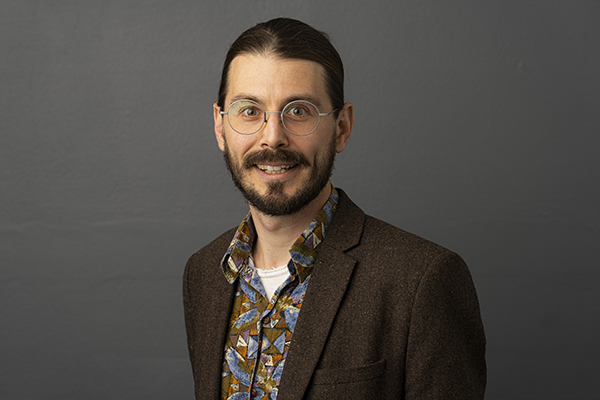Alexander Sebastian Hauser
Research leader

Project title
Pleiotropic effects — from drug targets to drug actions
What is your project about?
Pleiotropy occurs when one single gene or protein influences multiple, seemingly unrelated traits or functions of an organism's biology - like a multitasking worker in a company. For instance, a protein might affect a person’s taste preference, but also play a role in their metabolism or immune system. This concept is important in genetics and biology because it shows how complex and interconnected our genetic makeup can be. I want to elucidate if the natural variability in the human population is associated with pleiotropy and want to test if pleiotropy can also explain adverse drug reactions by combining cellular assays, patient data, and computational methods. An improved understanding of pleiotropy in clinically important proteins might help to identify better drug targets and open avenues for personalised medicine to prevent treatment delays or unnecessary side effects.
How did you become interested in your particular field of research?
Around the time I started my PhD, there was a revolution in structural biology, sequencing technologies, and computational methods. I started working on a group of proteins called G protein-coupled receptors (GPCRs). These proteins are the communicators of our cells, communicating with each other and the outside world. Drugs are also a way to communicate with our physiology and, therefore, it is not surprising that many drugs target GPCRs. An unprecedented amount of data is currently being generated and it starts to become clear that by understanding and integrating these diverse types of data, we can ask and answer fundamentally new questions – something I like to utilize to uncover new knowledge about human physiology and potential new drugs or treatment strategies to improve human health.
What are the scientific challenges and perspectives in your project?
The project faces two main challenges. First, computational limitations due to the combinatorial explosion when combining genetic data of thousands of individuals with their various diseases and medication history. To address this problem, we will focus the analysis on selected genetic markers and their associated disease areas. And second, translating data from cellular assays performed in controlled laboratory settings to real-world effects is a tremendous challenge. By integrating multiple datasets including genetics, molecular observations from cell-based assays, protein structures, and real-world human data, we hope to close this gap. The project thereby has the perspective to provide a unique foundation for targeted drug discovery and drug repurposing efforts.
What is your estimate of the impact, which your project may have to society in the long term?
In recent years, there has been an explosion in the number of biobanks around the world. A biobank, such as the upcoming National Genome Center, contains genetic data from DNA sequencing of hundreds of thousands of individuals. By linking this genetic data with disease history or medication use, we have a unique opportunity to understand how our genes affect our health. This project aims at utilizing this knowledge in the most responsible way that may one day allow us to administer the ideal treatment directly without unnecessary side effects.
Which impact do you expect the Sapere Aude programme will have on your career as a researcher?
First of all, it is a great recognition of the work we are doing, which would not have been possible without the past and present members of my research environment. The Sapere Aude: DFF-Starting Grant, with its focus on fostering high-level research and encouraging innovative thinking, may spark new connections and collaborations in the Danish research community and I hope it will open new doors and inspire new research projects. Lastly, the financial support provided by Sapere Aude allows me to pursue an ambitious research project, including the development of a new research framework combining experimental and computational biology and its utilization towards better drug targets and treatments.
Background and personal life
I grew up just outside Berlin, Germany, and studied molecular biomedicine at the University of Münster, where I also met my partner. My studies allowed me to live in different cities and countries such as Cambridge, Boston, Hamburg, Hyderabad, and Helsinki. Now, we and our three children (7, 4, ½ year) have settled just north of Copenhagen. Together, we enjoy being in nature or exploring the city’s hidden treasures. Outside work, I am an enthusiastic long-distance runner, road biker, and climber whenever time allows.
View all research leaders here
Research institution
University of Copenhagen
Research field
Computational and systems biology, pharmacology
City of your current residence
Fredensborg
High school
Barnim-Gymnasium Bernau
